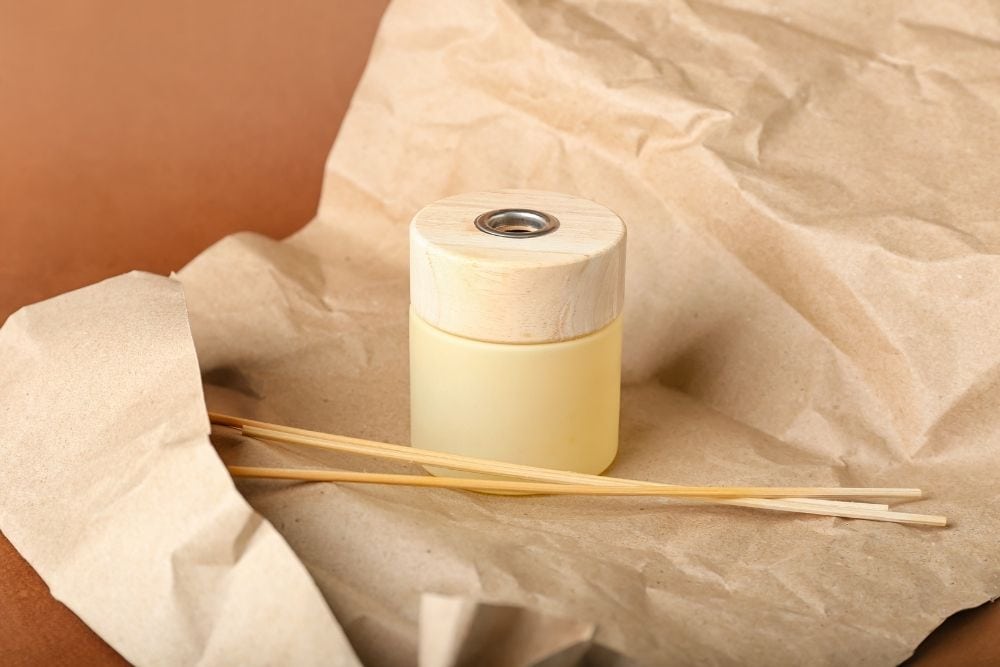Reed diffusers can last several months.
You don’t need to clean them, and they give off a subtle yet enjoyable scent.
So what should you do when those months of happy oil reed diffuser finally end?
How do you safely dispose of reed diffuser sticks, the oil inside, and even the bottle?
To start, you shouldn’t just chuck the entire thing in the trash, although we know that seems like the easiest option.
Every element of the diffuser needs to be disposed of separately and safely.
Keep reading to learn more!
How To Throw Away Sticks?
Reed diffuser sticks are an essential part of a good reed diffuser.
The oil, water, or other diffuser liquid travels up them and is dispersed around the space.
These aromatherapy sticks should be changed every six months and cannot be reused after their time.
We also recommend flipping them in the diffuser every week to keep the scents smelling lovely and fresh!
What’s great about diffuser sticks is that they are typically made from bamboo or wood.
This makes them very easy to throw away.
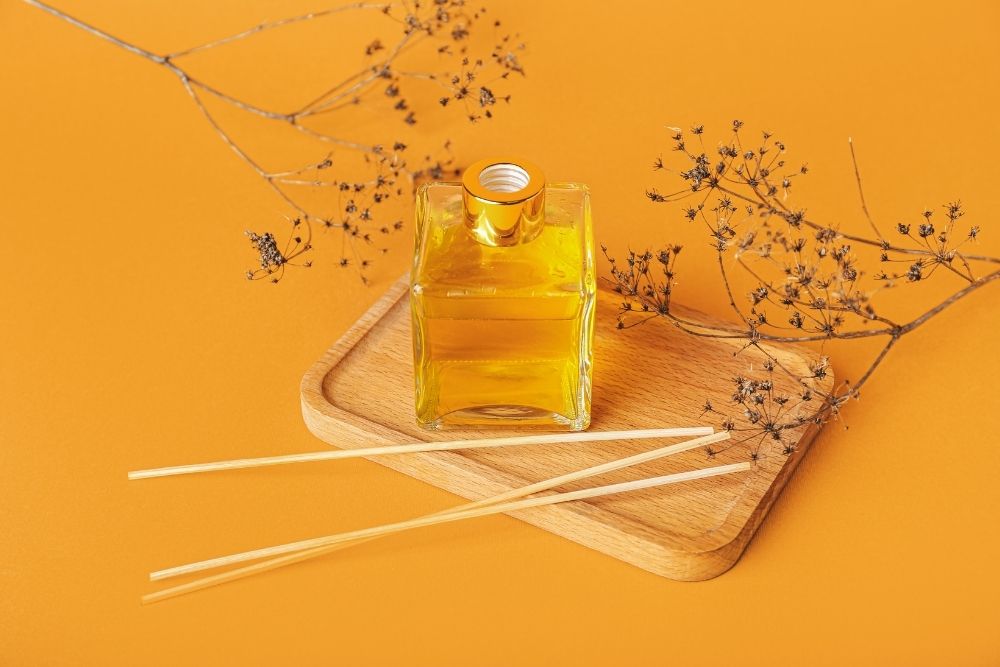
Bamboo will compost within 2 to 6 months, so it’s perfect for tossing into your background compost.
You could also throw them away.
Of course, you should always check what your specific reed diffuser sticks are made of beforehand.
If they have any dyes or plastics in them, avoid putting them in any trash cans or composts designed for organic material.
We also recommend cutting up the sticks a couple of times. It’s a quick and easy step that ensures they won’t poke through a trash bag or take as long to break down.
However, one thing to consider before passing off your reed diffuser sticks as organic matter is the kind of reed diffuser liquid they are soaked in.
Just because the sticks are no longer in the diffuser doesn’t mean they still aren’t completely saturated in their oils.
If you’re planning on composting your reed sticks, think about if you’re okay with traces of the reed diffuser also being composted.
Alcohol is fine to compost in moderation, so don’t worry if your liquid contains any high-proof alcohol.
We weren’t able to find anything that suggested that small amounts of essential oils would ruin your compost either, so they should be fine.
However, store-bought reed diffuser liquids may not be great for composting since they are usually more artificial than whatever DIY liquid you can make at home.
While we know that reed diffusers only soak up a tiny amount of these liquids, it is still important to read over all of the liquid’s ingredients before contaminating your compost.
Oils/Liquid
Now that you know what to do with the sticks let’s tackle how to deal with reed diffuser oil.
First, there shouldn’t even be that much reed diffuser oil to get rid of… because it should all be used as much as possible!
But if you’re obligated or feel compelled to dispose of the diffuser liquid for whatever reason, there are a few options.
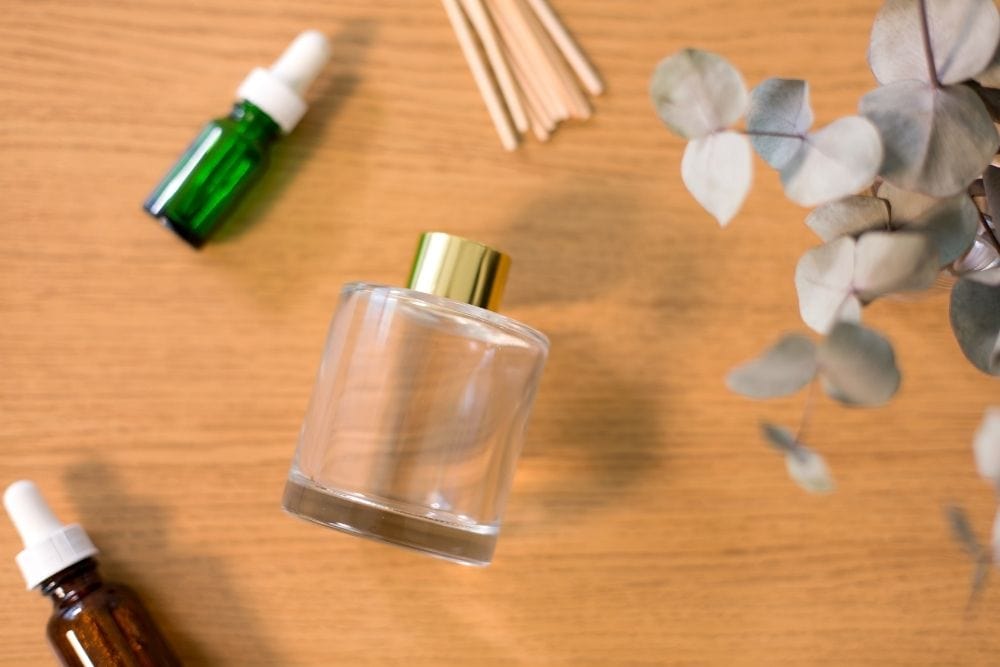
Essential oils should never be poured down the drain for the same reason you should not ingest them or apply them directly to your skin — they are incredibly potent.
What if these concentrated oils accidentally come into contact with marine life?
Or ended up in our drinking water?
That would not be good news.
If all the diffuser has left is a couple of tiny drops of liquid, we suppose that wouldn’t do any ecological damage, but any more than that should be disposed of responsibly and carefully.
Small amounts of reed diffuser oil can be soaked into a paper towel or dumped in a container of baking soda.
With both methods, you should let the liquid evaporate as much as possible before throwing away the towel or baking soda.
We would only recommend the evaporation method if you have a tablespoon or two of oil to get rid of.
When dealing with large amounts of oil, it’s recommended that you contact your local waste-management agency.
Reed diffuser liquid can be toxic, and many states have procedures for citizens to follow for throwing away hazardous waste.
They might ask you to pour the liquid into a container of sand and tightly seal it.
That way, the liquid gets soaked up, and the risk of it leaking into the environment or water decreases significantly.
Although this might sound complicated, the great thing about reed diffusers is they last for a very long time.
You will not have to worry about throwing away hazardous liquids very often.
Of course, the easiest way to ‘dispose’ of reed diffuser liquids is to use the diffuser to completion.
You’ll get your money’s worth for the product and have a stress-free time dealing with the few drops of oil residue left in the diffuser bottle.
Remember, lots of people enjoy reed diffusers, so if they can use and dispose of them properly, so can you!
Bottle
So you’ve composted the sticks, poured the remaining liquid into a paper towel or container of sand, and now you’re just left with the reed diffuser bottle. What do you do now?
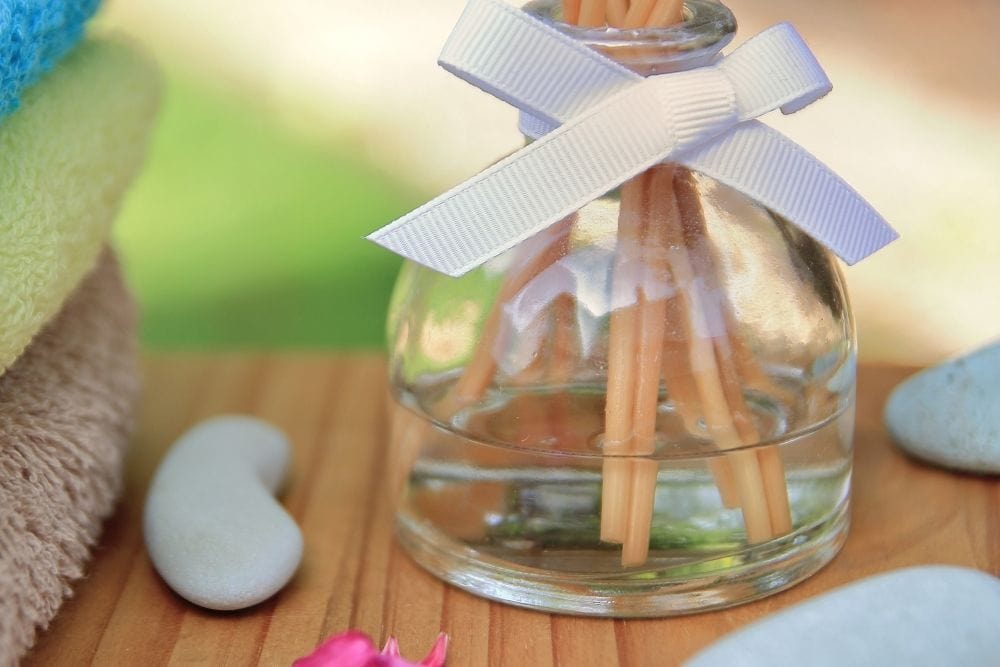
Well, it depends on what your bottle is made out of.
Plastic and glass can be recycled, but ceramic cannot. However, you can reuse glass and ceramic containers if you clean them well beforehand.
If you are going down the recycling route, we also recommend that you give the containers a good scrub before tossing them into the allocated recycling tubs.
We also love the idea of reusing your reed diffuser bottles for more reed diffusers!
You can buy the liquid online or make it yourself at home. All you have to do afterward is pop in 5 to 6 reed diffuser sticks, and you’re good to go.
This is a great way to minimize waste and save money. After all, one of the more expensive parts of buying a reed diffuser is the bottle and packaging.
With that out of the way, you can focus on investing in high-quality essential oils or reed diffuser liquid from your favorite company.
Just make sure that whatever liquid or oil you use is safe for children and pets if you have them. Citrus is particularly dangerous for cats, so keep that in mind!
Besides that, virtually any essential oil can be turned into a reed diffuser liquid if added to a carrier oil and a spoonful of high-proof alcohol.
Have fun with it, and create your blends and customized scents!
Stay Safe!
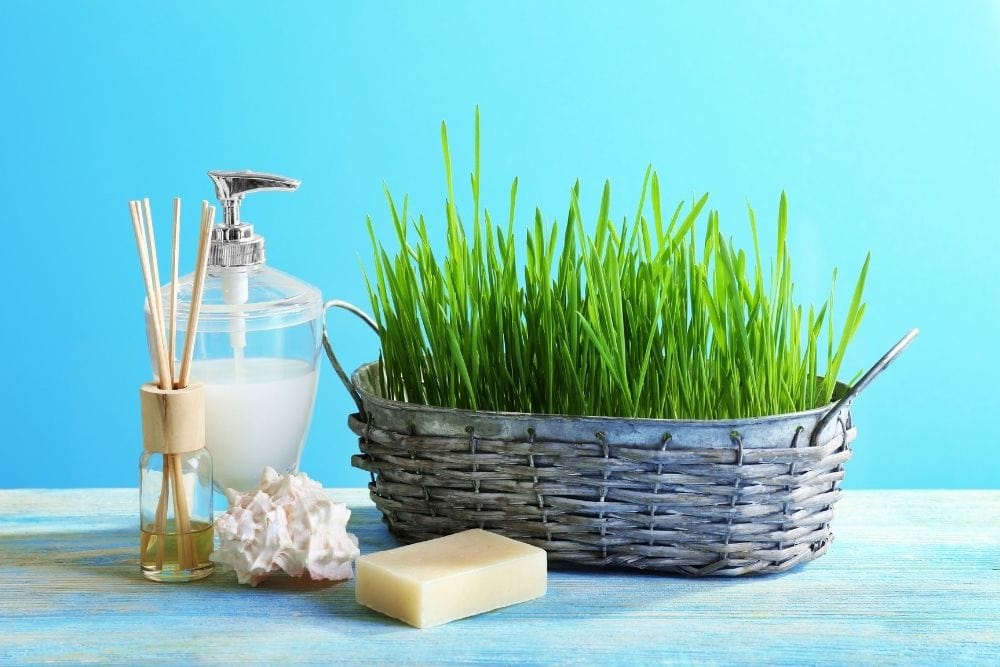
With great oiling comes great responsibility. Delving into the essential oil world often means double-checking what is safe for your body, children, and environment.
Essential oils can be incredibly beneficial, but they are also super powerful and need to be handled as such. We know you can make the right decisions to stay safe!
If you’re still unsure of how to dispose of your reed diffuser sticks, oils, or bottles, please get in touch with your local waste-management agency.
They will happily walk you through the best ways to throw them away.
Happy Oiling!

I currently work as a medical receptionist, but my ultimate goal is to work as an occupational therapy assistant. Helping others achieve a better quality of life is something I’m after. That’s one of the main reasons I started this blog. Learn more about me.
